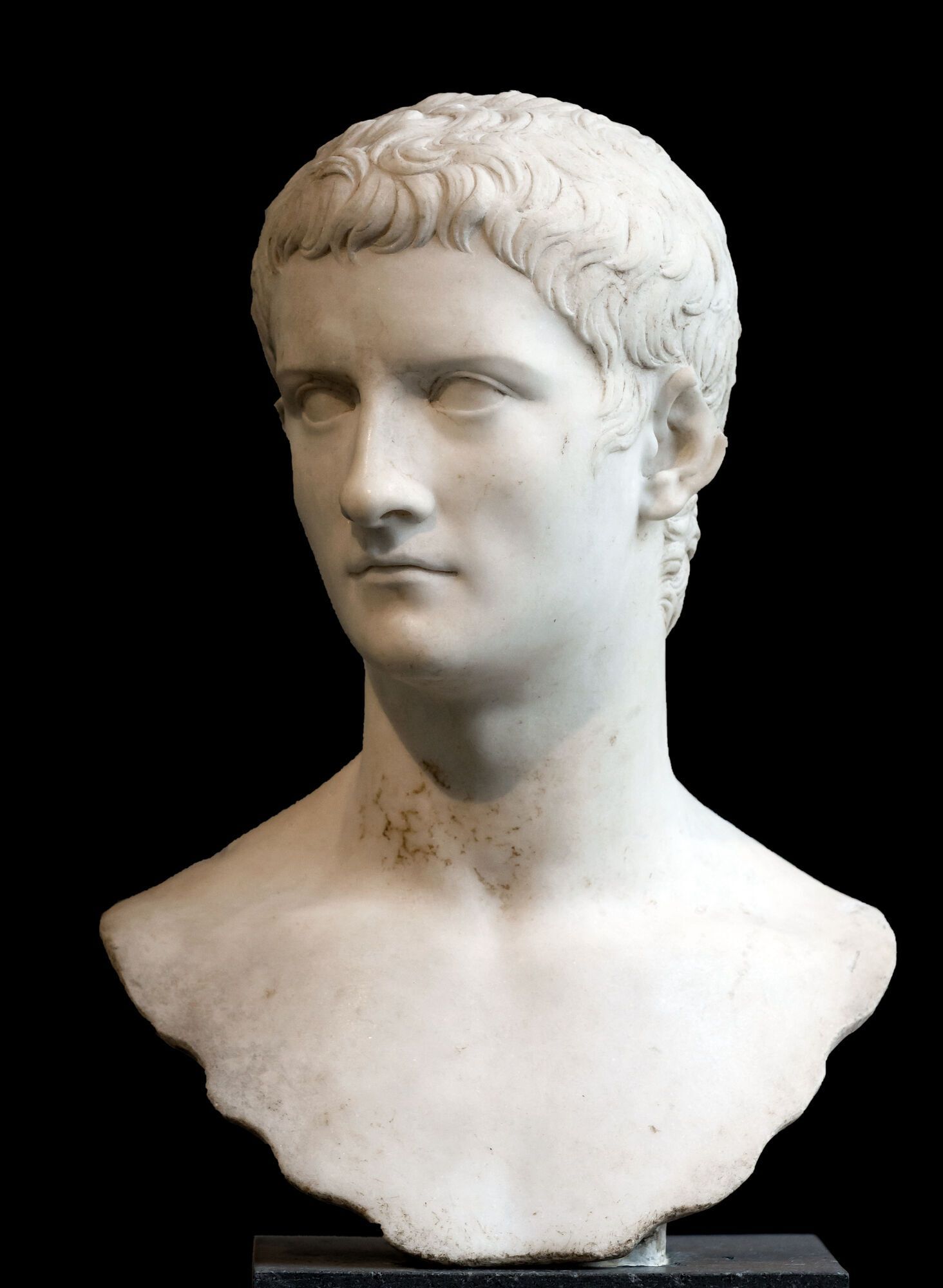Society
Britain and the United States went to war over the killing of a pig, and Caligula made a horse a senator: top 10 impressive historical facts
World history is rich not only in interesting and important facts for humanity, but also in seemingly absurd and ridiculous events. In particular, in the nineteenth century, a pig caused a war, and in the Middle Ages, fights were organized to resolve family conflicts between husband and wife.
Such facts are not written in historical textbooks, but their knowledge will help to expand knowledge of world history. OBOZ.UA has made a selection of the top 10 most impressive historical facts.
The Pig War between the United States and Great Britain
In 1859, there was a confrontation between the United States and the United Kingdom on the British-American border on the San Juan Islands, between Vancouver Island (modern Canada) and Washington State. Despite being called a war, there were no casualties on either side, except for a pig.
The dispute over the border between the United States and Britain was settled with the adoption of the Oregon Treaty on June 15, 1846. But 13 years later, the shooting of a pig led to a new conflict.
An American farmer, Lyman Cutlar, who moved to San Juan, discovered a pig digging roots in his garden. After several incidents, he decided to shoot the animal. But later it turned out that the pig belonged to an Irishman named Charles Griffin. The farmer offered him $10 in compensation, but Griffin was unhappy with this offer and demanded $100.
This conflict escalated into an international confrontation, and the British authorities even threatened to arrest Cutlar. For their part, the American settlers requested military protection.
When news of the crisis reached Washington and London, officials in both countries were shocked and took steps to calm a potentially explosive international incident. During the negotiations, both sides agreed to continue their joint military occupation of the island until a final settlement was reached, reducing their presence to a symbolic number of just over 100 people. It was not until 1872 that the British withdrew their Royal Marines from the British camp, with the Americans following in July 1874. The Pig War is commemorated in the San Juan Island National Historical Park.
A senatorial horse in ancient Rome
The Roman emperor Caligula, who ruled from 37 to 41 AD, was characterized by extreme wastefulness, which led to a catastrophic deterioration in the financial state of the empire. Contemporary historians write that Caligula was distinguished by good intellectual abilities, but at the same time he was cunning, treacherous, cruel, and greedy.
One of the most well-known facts about Caligula's reign is the stories of Livy and Dion Cassius about the emperor's desire to make his favorite horse, Inquitus, a consul. At the same time, some historians doubt that this actually happened and associate the horse's "political career" with numerous fabrications of Caligula himself.
In 2014, David Woods analyzed the information about the imperial horse in a special article and concluded that the information was taken out of context, originating from an imperial joke based on a wordplay typical of Roman culture.
Medieval family fights between husband and wife
If the story of the ancient Roman horse-politician is difficult to confirm, historians have no doubt about medieval fights between spouses.
Unfortunately, domestic violence has been and remains a serious problem at all times of humanity. However, in the harsh Middle Ages, a very original way was invented to resolve disputes between spouses.
Instead of banning violence and punishing it, they decided to legalize family fights.
In 1467, the German fencing master Hans Talhoffer wrote a manual on fencing called Fechtbuch. Some of his stories were devoted to the organization and conduct of court fights between spouses.
In the case of domestic violence, the court would decide to escalate the conflict even further and resolve the dispute with a duel. Thus, a man sitting in an earthen pit up to his waist was armed with a stick. His wife was given a bag with a stone weighing 1.5-2 kg.
It is worth noting that any techniques were allowed during the fight, including blows to the head, strangulation, shoving a stick between a woman's legs and twisting a man's penis. At the end of the fight, the winner was determined by a judge.
Money does not smell
During its centuries-long existence, the Roman Empire managed to distinguish itself not only with many useful inventions that are still used in the modern world, but also with absurd things. For example, the Romans suddenly decided to find "useful" properties in urine. Since it contains a lot of ammonia, which has bleaching properties, it was used as a laundry detergent and even for brushing teeth.
Roman laundries employed specially trained people who dipped worn clothes into vats of urine and then trampled on them with their feet. After that, the clothes were rinsed in water with ash or clay.
The Romans, who valued a snow-white smile, even rinsed their mouths with urine to make their teeth whiter. This "beneficial" effect was achieved due to the high ammonia content in urine.
In addition, human urine was used to tan leather, treat sheep by pouring urine down their throats, and, according to the Roman historian Columella, was used as fertilizer for growing pomegranates.
It's worth noting that the shortage of urine in the Roman economy forced Emperor Vespasian to tax public restrooms. His son Titus Flavius even thought that his father had gone mad, to which the emperor replied with a phrase that has become famous even in our time - "Money doesn't smell!"
The shortest war in the history of mankind
In 1896, the shortest war in human history took place between England and Zanzibar. The confrontation lasted only 38 minutes and ended in victory for the British.
The war began on August 27 at 9:00 am and lasted until 9:38 am. During this time, only one British soldier was wounded, and there were no casualties at all. However, Zanzibar lost 500 people killed and wounded.
On August 26, 1896, Britain issued an ultimatum, ending on August 27 at 9:00 am, according to which Zanzibar had to lay down its arms and lower the flag.
The terms of the ultimatum were not accepted, and at exactly 9:00 a.m. on August 27, British ships opened fire on the sultan's palace. The bombardment lasted 38 minutes, killing about 500 people on the Zanzibari side and lightly wounding one junior officer on the British side. This conflict went down in history as the shortest war.
Sacred cats in ancient Egypt
In ancient Egypt, cats were considered a symbol of fertility and the sun, as well as sacred animals. A large number of deities were associated with cats in Egyptian mythology. In addition, the facts of cat mummification have survived to this day.
When a cat died in ancient Egypt, all family members shaved off their eyebrows as a sign of mourning. In a number of papyri and ostracons that have survived to this day, cats are represented in satirical images.
The cult of cats was officially banned under the edicts of the Roman Emperor Theodosius I the Great, aimed at combating paganism. Thus, interest in cats in Egypt began to gradually fade, and although they remained as pets, they were no longer objects of worship.
Albert Einstein could have become president of Israel
In 1948, Israel gained independence from Great Britain, and four years later, the famous theoretical physicist and public figure Albert Einstein could have become president of this country. The scientist was an active defender of the Jewish people, so the then Prime Minister of Israel, David Ben-Gurion, invited him to run for president.
Einstein was touched by the proposal and wrote a letter saying: "I am deeply touched by the offer of the State of Israel, but I regret to decline it."
The scientist explained that he had no experience in government, so he decided to continue his life as a physicist.
Heroin for children
Nowadays, heroin is considered one of the most dangerous drugs. But only about 100 years ago, it was used as a medicine for adults and children.
From 1898 to 1910, this drug was used to treat coughs. The substance was also sold as a sedative. This was facilitated by the fact that heroin causes relatively calm euphoria with minimal deviations in behavior and intelligence if used for a short time.
Fortunately, scientists soon found out that heroin is converted to morphine in the liver, so its "medicinal" properties were canceled. Today, no pharmaceutical company in the world produces or sells heroin as a medicine.
One of the Seven Wonders of the World
The Pyramid of Cheops is the only one of the Seven Wonders of the World that has survived to this day. Its age is estimated at about 4500 years.
One of the most important tourist attractions in the world was built over 20 years, and about 100 thousand people took part in the most difficult works. The size of the pyramid's base reaches 230 meters. Initially, its height was 146 meters, but now the pyramid has shrunk to 138 meters.
Scientists are still unable to determine the exact composition of the mortar used by the Egyptians to fasten the huge blocks of the pyramid. At the same time, it is known that the Cheops pyramid was originally lined with white limestone. This cladding reflected the sun's rays and was visible from a great distance.
Perhaps this limestone would have survived to this day, but in the 12th century, Arab conquerors sacked and burned Cairo, after which the locals dismantled the pyramid's lining to build housing.
There is a version that the Cheops pyramid is a calendar as well as an accurate compass, and conspiracy theorists try to claim some kind of alien intervention during the construction of the pyramid.
Arabic numerals were invented in India
Although the traditional set of ten characters from 0 to 9 is called Arabic numerals, they were actually invented in India. The name "Arabic numerals" was formed historically because the decimal positional number system came to Europe through Arab countries.
Initially, these numbers were used in Arab countries in Asia and Africa. However, they were invented in India in the distant fifth century. The first record that has survived to this day in the decimal positional system dates back to 595 AD. Initially, there was no separate sign for zero in India, but an empty space was left instead. The symbol for zero was finally developed only in the ninth century.
Implemented with Arabic numerals, the decimal positional numbering system gradually replaced Roman numerals and other non-positional numbering systems due to its many undeniable advantages.
































